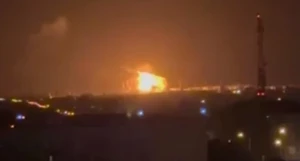
Ukrainian Armed Forces eliminate Russian grouping in Bakhmut that could have been sufficient to repeat Kyiv offensive
Ukraine’s Armed Forces destroyed a significant number of Russian personnel near Bakhmut – so many they could have been enough to repeat a strategic offensive operation
Military expert Ivan Kyrychevskyi stated this on Espreso.
"The worst-case scenario is that our troops will eventually have to withdraw after eliminating some Russian forces. However, Ukraine's military and political leaders are determined to prevent any Russian advance beyond Bakhmut. A more optimistic possibility is that the Russians will become bogged down in urban warfare. We had some time to fortify Bakhmut as a virtually impregnable stronghold against the invaders," he said.
According to him, Ukraine’s Armed Forces destroyed a significant number of Russian personnel near Bakhmut – it could have been enough to repeat a strategic offensive operation.
"Up to 50,000 people were either killed or wounded, and around 200 tanks were destroyed. If these troops were not neutralized, Russia could use them to launch a second attack on Kyiv. The planned counteroffensive may yield greater and faster success than currently anticipated," the expert emphasized.
He added that the withdrawal of Ukraine’s Armed Forces across the Bakhmutka River was planned.
"We made sufficient organizational efforts to prevent the Armed Forces of Ukraine from withdrawing across the river as long as it was possible. We then withdrew and established a zone of defeat where we continued to target the enemy with all available weapons. While we should not create unrealistic expectations of stabilizing the front for several months and preventing Russian advancement, we have reason to believe that the Russian troops will be bogged down and worn out for an extended period. The current situation is crucial to the success of our future counteroffensive. It is important to keep the troops in a winning mood and prevent any sensitive issues. We will continue to fight in Bakhmut as long as possible," concluded Kyrychevskyi.
- News














































